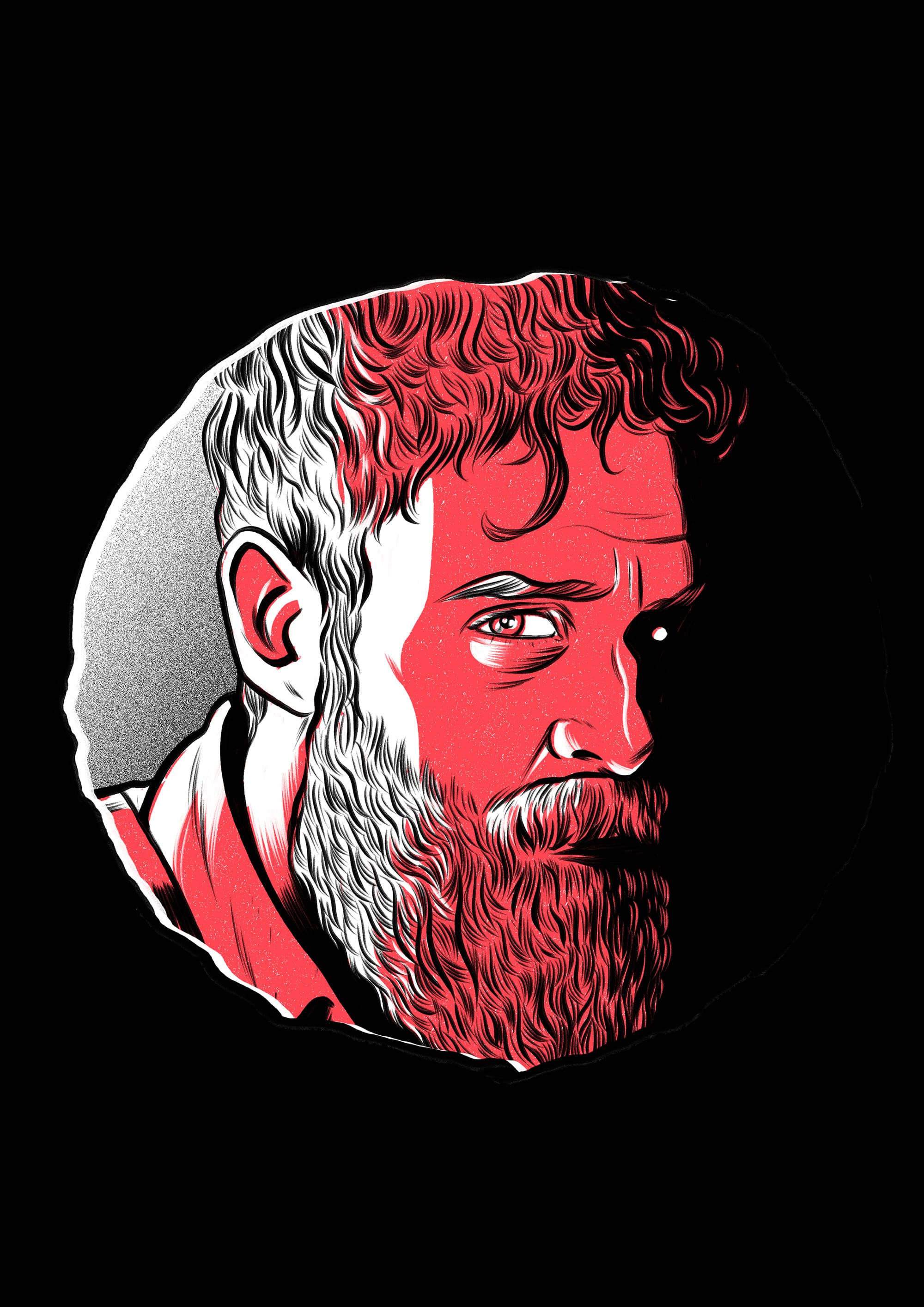Six Feet Away
On Lockdown, Covid Horror, and Low Budgets

Caveat (2020) Dir. Damian McCarthy
Isaac, a cash-strapped man suffering from amnesia, is offered a job by his friend Barrett. The job is simple, “babysit” Barrett’s niece Olga for a few days. But there’s a caveat: he’ll need to wear a harness and chain that prevents him from entering parts of the house or leaving the house at all.
“There’s got to be more to it than that.” - Isaac
Given horror is a genre that can be incredibly adaptable, made quickly, and maybe most importantly, cheaply, it was almost inevitable that the first films that came out of lockdown and Covid were in the horror genre.
One of the more successful and effective horror films to be made during this period was Host. Cleverly playing on our shared Zoom fatigue and virtual social lives with a seance gone wrong. We also got Ben Wheatley’s In The Earth, largely filmed during lockdown.
But what is becoming more intriguing is the way in which horror continues to respond to the ways in which we do and don’t deal with the collective trauma of the pandemic years. I don’t think it’s controversial to say there’s a sense of Covid PTSD that everyone is dealing with in one form or another, and I’m not sure we talk about that enough. Horror is a perfect place to exorcise those demons.
Of course, there’s Kevin Williamson’s Sick (a solid if slight pandemic slasher), or The Harbinger, but those are explicitly about the pandemic. More tellingly, you can see hints of Covid anxiety in films like Talk to Me, Knock at the Cabin, Skinamarink, etc… No doubt there will be conscious and unconscious signs of the pandemic in horror for years to come.
With all this being said, it’s worth saying that horror has been interested in making the places we consider safe havens sites of extreme terror for most of its history. Haunted houses, home invasions, and suburban serial killers have all gained power from making the safe feel decidedly unsafe.
It’s also been a popular trope to play on the fear of being trapped and unable to flee a dangerous situation.
Caveat is one of those films. Made in the years before Covid, but released on Shudder in 2020, it’s striking how much it plays into the anxieties of lockdown. Perhaps the conceit feels especially potent now, but the idea of being in a potentially haunted house while wearing a harness that’s tethered by a chain to a dimly lit basement, feels like one of the more unsettling horror premises I’ve come across.
While the film bumps up against a low budget and an ambitious story that Irish writer-director Damian McCarthy had to streamline in a short amount of time, it’s these sort of limitations and challenges that I enjoy in horror cinema. It’s a genre that rewards filmmakers for finding inventive solutions to problems, and managing to mine scares from the flimsiest of materials available.
Caveat does this with aplomb. Masterfully using a dessicated toy rabbit that may or may not bang its drum when a ghost is near (or is it summoning a ghost? Or warning of nearby danger?) It continues to find fun, playful ways to tweak the audiences’ unease with such confidence that I can’t wait to see what McCarthy is able to do with a bigger budget and time.
It’s a genuinely creepy film and a solid entry in what may end up becoming, historically, part of the Covid Horror Canon.
Where can I watch it in the UK?
You can stream it for free on Shudder.
Pairs well with
For an altogether different tone, but keeping with the theme of being stuck indoors when you absolutely don’t want to be, I’d go with Housebound (2014, dir. Gerard Johnstone, available to rent for £3.49 on YouTube/Google/Apple/Amazon).
Housebound is a New Zealand comedy horror about a woman under house arrest at her mother’s home which may in fact be haunted. Worse, she has to wear an ankle bracelet so will be in violation of her probation if she runs away. Great set up, doesn’t disappoint.
Further Reading
- An interview with writer/director Damian McCarthy.
- Looking around for relevant links, I came across a paper arguing that horror fans and the morbidly curious were more psychologically resilient during Covid. I’ve not read this but it made me smile.
- A piece written in 2020 asking if Covid will change the face of horror, by way of talking about the various horror cycles throughout history.
Other Recommendations
- A social media app I’ve been enjoying a lot lately has been Music League - where you can invite your friends to submit songs on a theme and then vote for your favourites. Ostensibly it’s a competition, but really it’s just a fun way to collaborate on a playlist with your pals. I’m recommending this here as our league is currently doing a month of halloween adjacent playlists and the results have been delightful!
- An excellent BPOC horror/gothic reading list from Lighthouse Books.
